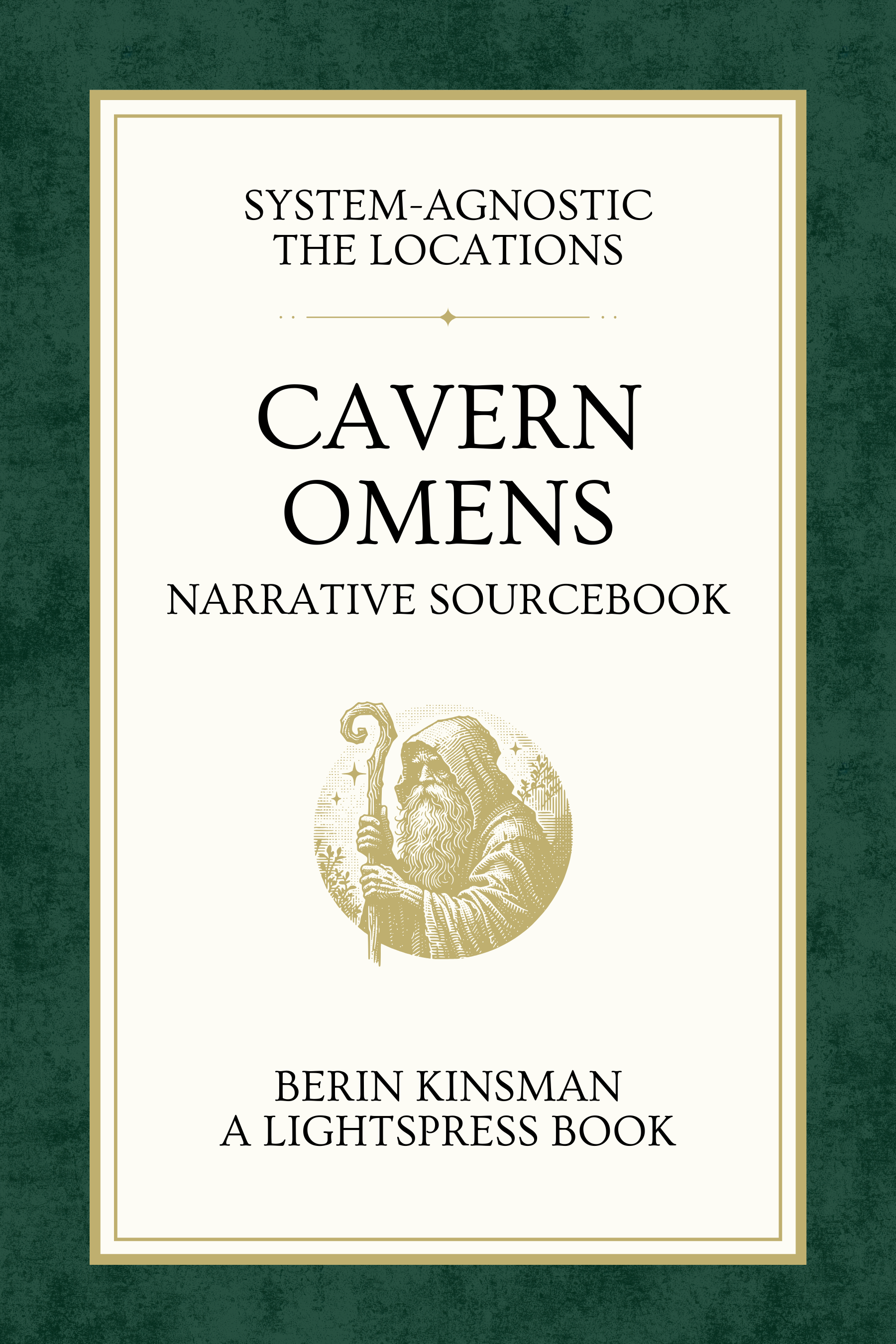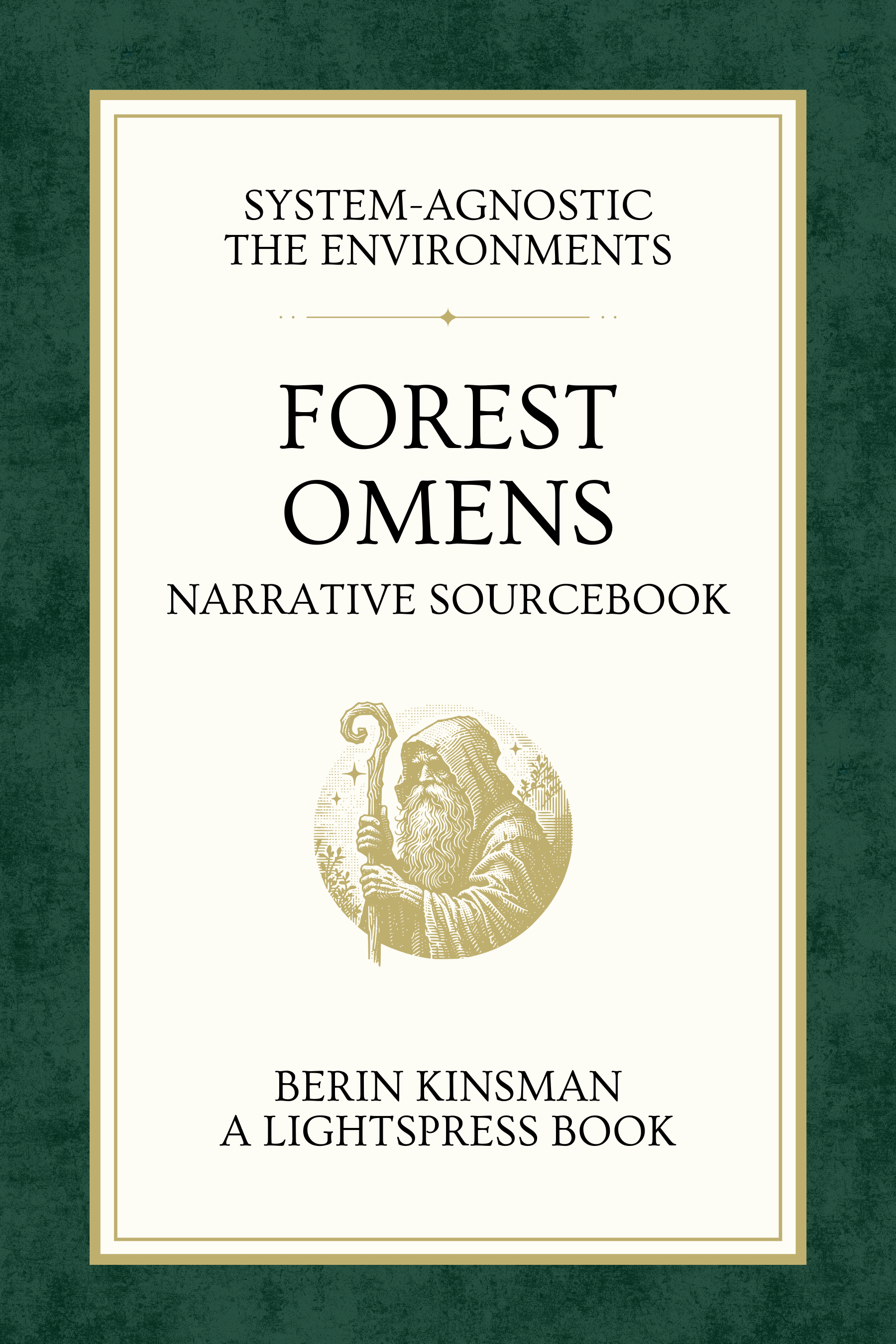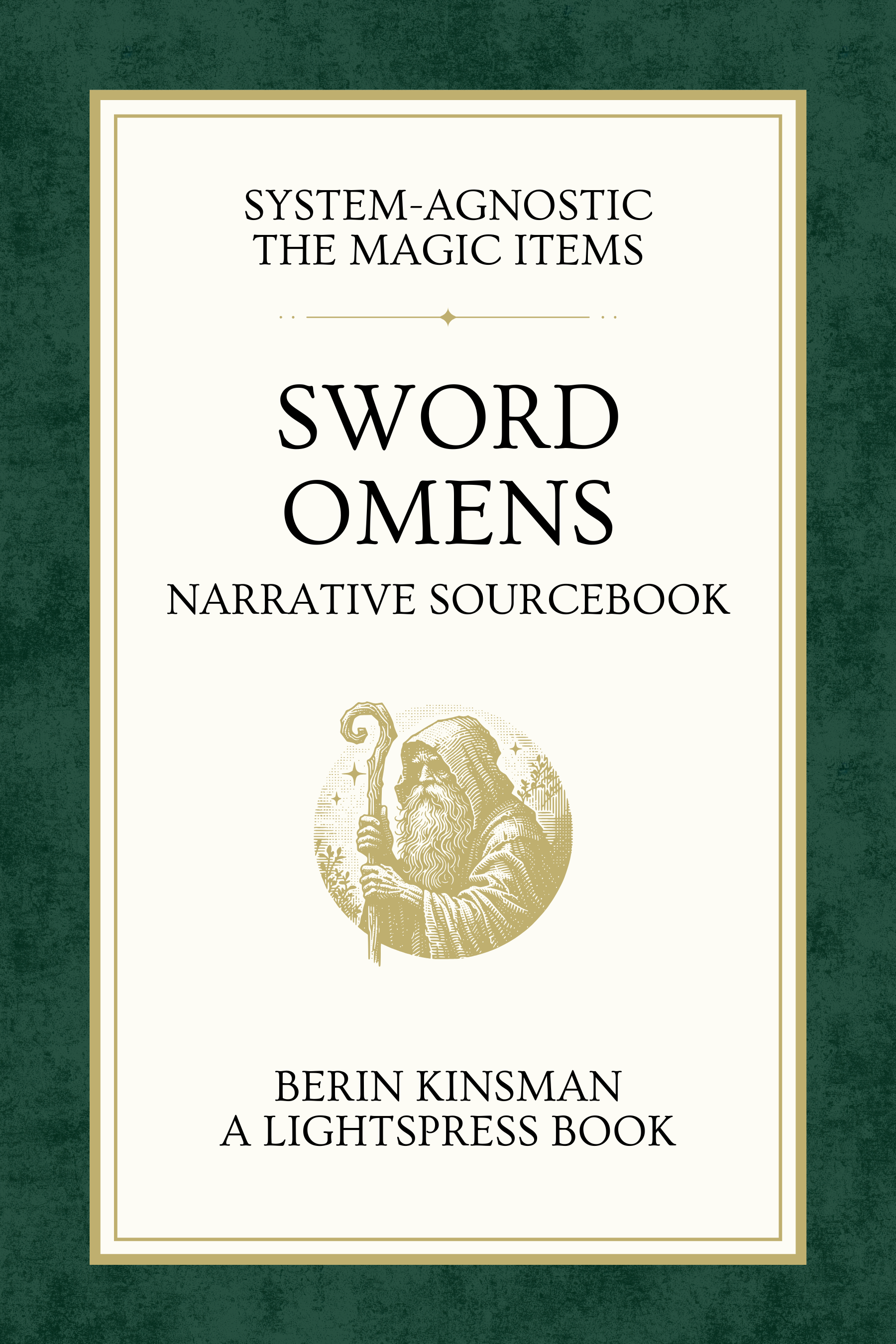The Fantasy Ones Are the Green Ones Now
All Lightspress fantasy roleplaying books now share a unified cover design. Look for the wizard, dark green border, and Georgi Marchev artwork to find cozy and heroic fantasy books, system-neutral tools, and sourcebooks.
Now Available: Summer Omens
Discover Summer Omens, a system-agnostic sourcebook for fantasy roleplaying that treats summer as a narrative event. Use this storytelling tool to explore heat, consequence, and moments of peak intensity in your campaign. Includes prompts, character ideas, complications, and adventure hooks.
Why It's Called The Addendum
The Addendum is the Lightspress blog for thoughts that don’t fit in the newsletter. Learn why it exists, what it means, and how it fits into the larger work.
Now Available: Ring Omens
Explore the meaning of magical rings with Ring Omens: A Narrative Analysis. This system-agnostic fantasy roleplaying tool helps you treat rings as symbols of legacy, promise, and consequence. Includes character archetypes, story complications, worldbuilding prompts, and adventure hooks.
Why There’s a Moon on the Cover
The moon on the cover of The Simple Approach isn’t decorative—it’s functional. Learn why it represents the system’s consistency, clarity, and universal design. Includes details on the updated edition and how to get it.
Now Available: Cavern Omens
Cavern Omens reimagines caves as narrative forces in fantasy roleplaying. This system-agnostic book offers character ideas, story complications, worldbuilding prompts, and adventure hooks that treat caverns as thresholds, echoes, and moments of transformation.
This Isn’t a Logo. It’s a Line in the Sand.
The new Lightspress emblem isn’t for branding. It marks survival, direction, and a refusal to disappear during an economic collapse that’s hitting creators everywhere.
Now Available: Wish Omens
Explore the consequences of casting wish with this system-agnostic roleplaying supplement. Wish Omens offers narrative framing, character archetypes, worldbuilding prompts, and story complications that treat magic as meaning. Part of the Omens: A Narrative Analysis series.
Now Available: Forest Omens
Explore storytelling prompts, character ideas, worldbuilding questions, and adventure hooks inspired by enchanted forests. Forest Omens offers system-agnostic tools to bring quiet magic and lasting mystery into your fantasy roleplaying stories.
Now Available: Sword Omens
Sword Omens treats enchanted blades as narrative anchors, symbols of choice, memory, and identity. This system-agnostic guide helps you use swords to reveal history, shape character arcs, and define the cost of power. Designed for story-centered play.
The Manifesto: Quiet Shifts and Clear Direction
The third quarter moon issue of The Manifesto shares what's shifting, what's returning, and what’s newly released. Explore the Omens series, upcoming roleplaying books, and future plans for Lightspress.
Now Available: Spring Omens
Spring Omens frames the season of renewal as a narrative force that brings emergence, vulnerability, and quiet reckoning. This system-agnostic book helps you shape characters, cultures, and moments defined by thaw, return, and what grows in the wake of winter. Built for story-first roleplaying.
Now Available: Red Omens
Red Omens explores red dragons as agents of disruption, desire, and inherited consequence. Use this system-agnostic tool to shape stories where fire marks more than destruction, it reveals truth, ambition, and what cannot be undone. Built for narrative depth.
Now Available: Gold Omens
Gold Omens treats gold dragons as narrative forces that reshape memory, power, and belief. This system-agnostic book helps you frame their presence as moments of transformation, legacy, and cultural significance. Built for story-driven play.
The Omens Books All Look the Same. That’s the Point.
Every Omens book follows the same structure with purpose. This consistency supports story-first roleplaying, narrative clarity, and meaningful use. The work is written by hand, shaped with care, and built to be used without automation or artificial shortcuts.
Now Available: Healing Omens
Healing Omens reframes the healing spell as a narrative act of mercy, memory, and change. Use it to create character-driven stories where recovery shapes identity, relationships, and cultural meaning. System-agnostic and deeply story-focused.
Now Available: Fireball Omens
Fireball Omens explores the iconic fireball spell as a moment of choice, consequence, and narrative weight. Use it to create story arcs, character depth, and worldbuilding grounded in magic’s impact. System-agnostic, reader-focused, and written with clarity.
Lanterns, Curses, and a Full Moon Update
The moon is full again. It pulls things into view. Unfinished thoughts. Half-written promises. Stories I meant to tell later. Some are ready now. Others can be set down without regret.
Boycott Big Corporations. Support Small Creators.
Independent creators are surviving inside broken systems while resisting this fascist regime. Here's why boycotts matter—and why small creators still need your support to stay visible, connected, and heard.


















